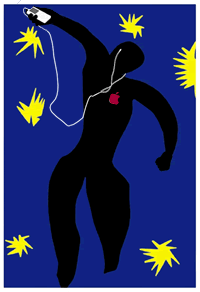It occurs to me that a casual visitor to my blog might notice that I haven't posted anything here since my
sad little post about losing Rufus. While I still miss the little guy, I didn't decide to end it all, however -- I've just been remarkably busy the past two months.
I'm hoping to get back to regular blogging, but it's particularly hard right now, especially since I'm working within so many different online systems and discussion tools with different schools and clients -- 3 different LMSs in 3 different colleges, 2 proprietary client LMSs, 3 different discussion boards and 2 different wikis. Unfortunately, when I'm this busy and something's gotta give, it's almost always my postings to my own blog.
Particularly when I'm teaching classes, I find it so frustrating to have so much of what I have to say trapped in all these different systems, almost none of which is open to public access.
In most cases, class discussion boards and other posting areas are inaccessible to
both the students and the teacher once the semester has ended and the course has been archived. While some systems automatically pick up basic course elements and incorporate them into the course shell for the next semester so the teacher doesn't have to spend all that time reposting course outlines and reading lists, there's invariably something significant that needs to be changed or added to accommodate the next course offering or schedule, and its rare for all of the key elements of the course to be ported to the next semester's shell.
This is what makes me feel like a digital migrant worker -- teachers who use online media so often have to find parallel systems for carrying around all the discussion topics, lecture notes, links, shared files, syllabi, announcements, etc., from one offering to the next -- and for those of us who teach similar courses in more than one institution, we even to keep copies of everything in multiple formats to accommodate all the quirks of the different LMSs. (Not to mention the nightmare of dealing with all of the different systems for posting official and unofficial grades - some of which are online and others of which require obtaining, filing out, and snail mailing paper documents.) ... It's almost always a matter of the teacher having to reorganize her/his own personal organization systems to accommodate the LMS -- not the other way around.
With all this accommodating going on, it's no wonder that most teachers balk whenever administrators or techs try to introduce a new piece of technology that promises to make their lives easier.
So what's the solution? I've found that Furl, del.icio.us, and similar tools are certainly a step in the right direction for helping teachers easily build portable personal knowledge management systems that are easily maintained and accessible from multiple locations - and it helps that they contain the ability to export information in multiple formats... then again, this doesn't quite solve the whole problem.
Oh, well, more on this later, I hope.... I've got a new class starting next week, so I better stop now and update my shell -- revise the syllabus, repost the FAQ and initial announcements, send out the initial messages, change the assignment due dates, upload the reading files, create the forum areas and topics, post the shared files, set up the synchronous meeting times, etc. ... a good two-three hours worth of donkey work...



 It seems like Wikipedia has been mentioned
It seems like Wikipedia has been mentioned  According to Wikipedia, the changes began to occur on the elephant page almost instantly, causing most of the site's elephant-related pages to be locked "because of recent vandalism or other disruption." It's interesting to look through the relevant page histories and discussions that have occurred in the short time since this incident ... and ironically, all of this highlights the site's strengths as an open and living resource. The incident prompted a particularly interesting comment on the site's
According to Wikipedia, the changes began to occur on the elephant page almost instantly, causing most of the site's elephant-related pages to be locked "because of recent vandalism or other disruption." It's interesting to look through the relevant page histories and discussions that have occurred in the short time since this incident ... and ironically, all of this highlights the site's strengths as an open and living resource. The incident prompted a particularly interesting comment on the site's 
 In addition to posting virtual museum tours and interactive art educational materials, museums are increasingly making their in-house audio tours - and special audio programming - available as free podcasts. Visitors can use the podcasts to listen on site or off, and subscribers can automatically receive feeds for new shows.
In addition to posting virtual museum tours and interactive art educational materials, museums are increasingly making their in-house audio tours - and special audio programming - available as free podcasts. Visitors can use the podcasts to listen on site or off, and subscribers can automatically receive feeds for new shows.
 Pelican Bay State Prisoner Donny Johnson, a lifer, makes his abstract paintings on the back of postcards using paints made from M&Ms and a paintbrush made from strands of his own hair, according to this
Pelican Bay State Prisoner Donny Johnson, a lifer, makes his abstract paintings on the back of postcards using paints made from M&Ms and a paintbrush made from strands of his own hair, according to this 
